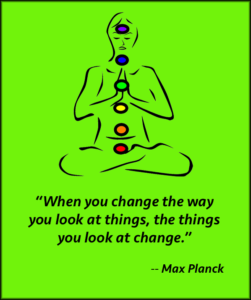 My rational mind is telling me there’s something wrong with my brain. It’s not working the way that I think it is supposed to, which is the way it has always worked for me in the past. So it must be broken, right?
My rational mind is telling me there’s something wrong with my brain. It’s not working the way that I think it is supposed to, which is the way it has always worked for me in the past. So it must be broken, right?
But there’s another part of me–another train of thought or perhaps my irrational mind?–that’s actually celebrating. That part of my brain is saying hallelujah, praise Jesus, hip-hip-hooray, and such. Because finally, 53 years after I arrived on this planet, my brain is working the way it should be working. Or is it?
That’s all perfectly clear, straightforward, and easy to understand, right? Yeah, it doesn’t make sense to me either. Trying to understand the why behind it all is making me crazy. For real.
Is my brain broken? Have I finally gone nuts? Or have I finally come to my senses? I don’t know which answer is right. Maybe there’s a little truth in both lines of thought. Or maybe my brain is and always has been working just fine, but my own reality has shifted.
That’s an even weirder thought!
Many people scoff at and immediately dismiss the whole idea of shifting reality. It’s tempting to dismiss it, certainly. I mean, reality is real. Everything we perceive with one or more of our five senses is either real or it isn’t. Right?
Nope. Scientists have learned an awful lot about brains and thought processes. Relatively speaking, however, there is so much more that scientists do not know. Really. So much so, that even science has started questioning reality.
Thinking about stuff like that can be quite mind-blowing. Literally.
If you have not read, watched, or in some other way come across any reality discussions, and are curious, check out this video I stumbled across on YouTube, “Reality is Not as it Seems.” I included an overview below.
The prevalent view in cognitive science today is that we construct our perception of reality in real time. But could we be misinterpreting the content of our perceptual experiences? According to some cognitive scientists, what we perceive with our brain and our senses does not reflect the true nature of reality. Thus, while evolution has shaped our perceptions to guide adaptive behavior, they argue, it has not enabled us to perceive reality as it actually is. What are the implications of such a radical finding for our understanding of the mystery of consciousness? And how do we distinguish between “normal” and “abnormal” perceptual experiences?
Cognitive scientist Donald D. Hoffman and neurologist Suzanne O’Sullivan join Steve Paulson to discuss the elusive quest to understand the fundamental nature of consciousness, and why our perception of reality is not necessarily what it seems.
Do we create our own reality? If so, does that mean everything we see, think, and physically feel is created in our own mind? Or do we share realities with people who are close to us?
If we see things others do not see, is it because those things are not real? Or is it simply because others are not able to see them? If we feel things, physically, that others cannot feel, are we nuts? Or do we just have different abilities?
I am trying very hard to find the answer(s). If you have any good ideas, do let me know. Meanwhile, I’ll keep digging.


Sounds like you need a nice, long, motorcycle road trip. Maybe in Italy or New Zealand…
Yes! New Zealand would probably be much warmer. And there’d be lots of sunshine. Great idea! 😉
Wow…my very first thought was “she’s thinking way too hard about this.” I agree with Richard, go for a long ride and clear your mind.
As I get further from the “normal” world, in both time and distance, I truly no longer give a thought to what’s normal. Nor a care. Truly liberating, I highly recommend it, LOL!
Lynne, sorry for the delay. I have busy running from reality. 🤔
I am trying to get Mike to agree to make some changes sooner. The planned date isn’t terribly far off, on one hand. On the other… it feels like it is a lifetime away. I’m trying to figure out how to survive, literally, in the meantime.
One day at a time.